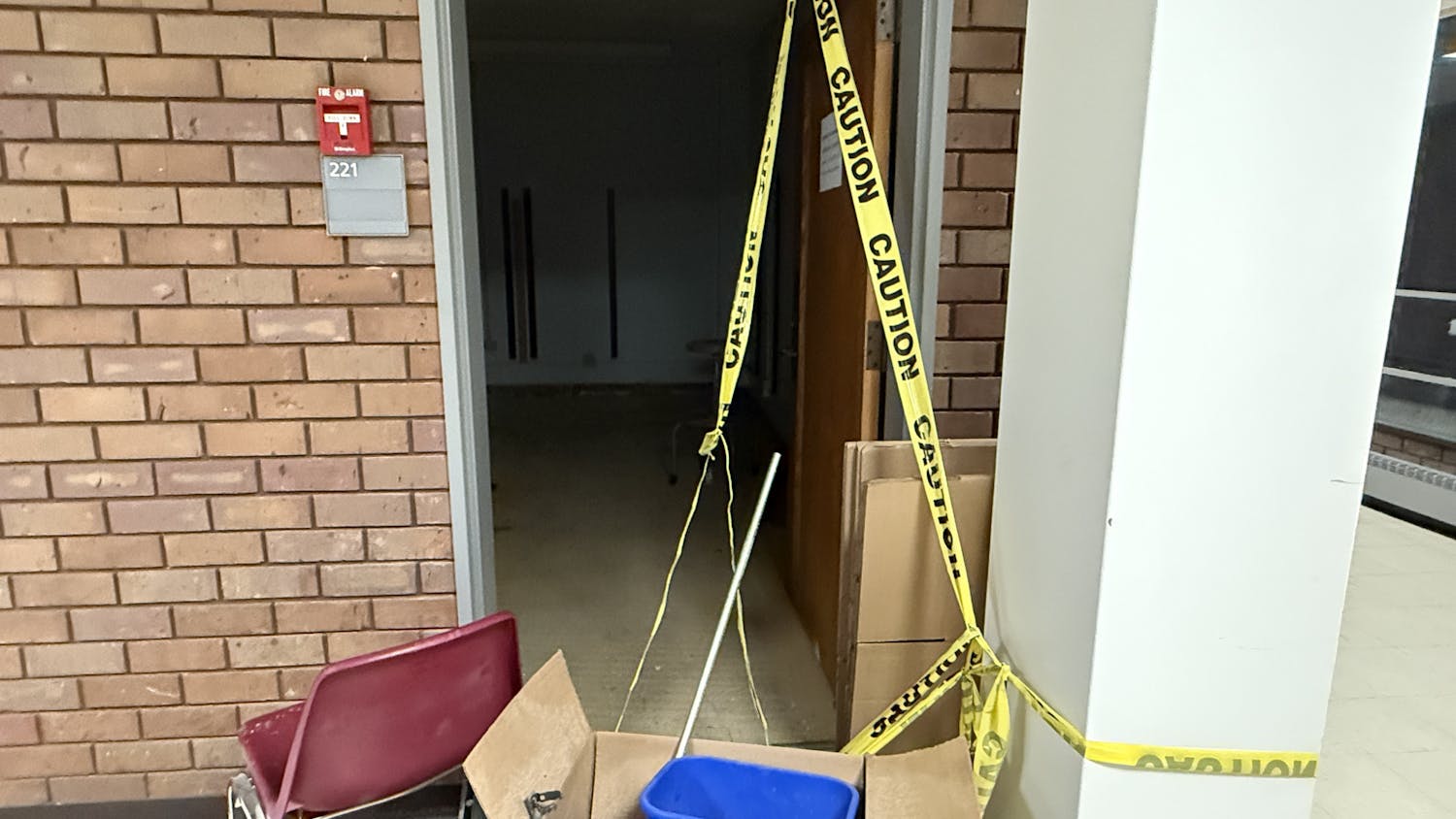When some international students arrived to UB for the start of this semester, the university screened them for symptoms of Ebola.
UB students from Ebola-affected countries in West Africa saw a nurse, who checked on the students using Center of Disease Control’s and county health department’s guidelines, according to a UB release. All of the students appeared healthy, according to the university.
“Our student health staff worked closely with the Erie County Department of Health to understand protocols for observing symptoms and responding to illness should it occur,” said UB spokesman Della Contrada.
UB is one of many U.S. colleges and universities that host a significant number of students and faculty staff who travel internationally, although no UB staff or faculty members have recently traveled to Ebola-affected areas. Schools, like UB, have been collaborating with Center for Disease Control (CDC) on the Ebola virus disease (EVD) outbreak.
There are 21 students from Nigeria, which is not experiencing a severe outbreak, enrolled in UB classes, according to a university release.
The current Ebola outbreak began in West Africa, where the first cases were recorded in March. This is the largest and most complex outbreak since the Ebola virus was first discovered in 1976, according to the World Health Organization (WHO). There is currently no known cure or vaccine approved for human use.
Della Contrada said monitoring student health on the disease will be handled by UB Student Health Services on an “as needed basis.” He said UB has “sufficient resources to evaluate and diagnose an Ebola case with the help of the [Erie] County Health Department.”
Susan Snyder, director of UB Student Health Services, said the department and all medical care facilities in Erie County received instructions from the Erie County Department of Health in early August. Health Services has communicated with individual students who may be at increased risk due to recent travel from an Ebola-affected region.
She said the CDC also provides guidance to health care providers and to the public through its website and posted a bulletin specifically for colleges and universities.
Temitope Olalekan, a junior exercise science major and vice president of the African Student Association, said it is challenging for the health staff to diagnose a case because it would have to be reliant on volunteers stepping forward.
Olalekan said he feels contacting students from Ebola-affected regions could make newly arrived students feel “uncomfortable.”
As of Sept. 14, there have been 5,347 cases and 2,630 deaths from Ebola, according to CDC.
WHO defines Ebola as a “severe, often fatal illness in humans” and the “average EVD case fatality rate is around 50 percent,” according to its website. It takes between two and 21 days until a person begins showing symptoms and humans are not infectious until they have signs of the disease.
“UB screened newly arrived international students, but they only screened African students or those who visited affected African countries,” Olalekan said. “How can they know whether other [international or local] students had contact with someone who traveled to one of the infected countries?”
Della Contrada said UB Student Health Services worked with residence hall staff to enhance understanding of the illness, its symptoms and university protocol for responding to the issue.
“Residence hall staff will continue to monitor any suspicious symptoms within residence halls,” Della Contrada said.
Snyder and Della Contrada said UB Student Health Services does not plan on having any additional screenings.
“After screening students closely and seeing no symptoms of the disease, we concluded there is no need for further screenings as the 21-day incubation phase has passed,” Della Contrada said.
Olalekan doesn’t feel the same way.
“There is no specific way to prevent the Ebola virus, that’s why educating people about this disease is important,” he said.
He said African SA is currently working on hosting an informational session on Ebola and hopes to provide students with some insight on the disease.
WHO lists symptoms of Ebola as vomiting, diarrhea, rash, symptoms of impaired kidney and liver function, and in some cases, both internal and external bleeding, according to its website.
Due to “fear of stigma,” people who do have symptoms may feel afraid to step forward, Olalekan said.
CDC’s website said Ebola poses little risk to the U.S. population, but health care workers should be alert for signs and symptoms of Ebola in patients “who have a recent (within 21 days) travel history to countries where the outbreak is occurring or have had contact with a person infected with Ebola.”
Andy Chen, a junior biology major, said he has read articles about the Ebola outbreak concerning travelers like Peace Corps volunteers who have been evacuated.
“We know that the risk of Ebola is low here in campus,” he said. “But still, in a campus with significant numbers of students and staff traveling internationally, people will continue to have concerns.”
Snyder said if students start becoming “ill with fever, diarrhea, vomiting or flu-like symptoms,” they can call UB Student Health Services to talk about their symptoms and recent travels.
email: news@ubspectrum.com





